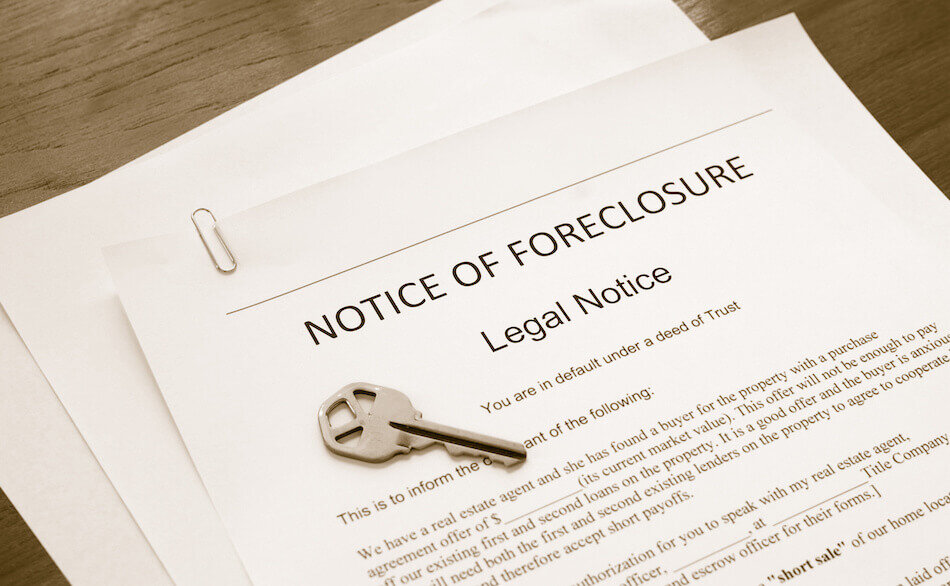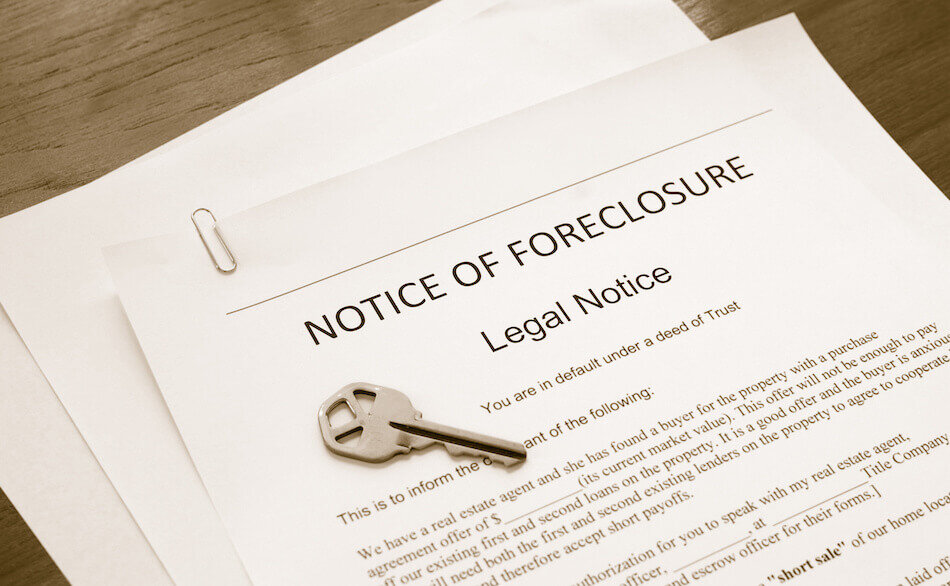 Facing foreclosure is scary. It means possibly losing your home when you can’t make mortgage payments. But here’s the good news: you have options to avoid it.
Facing foreclosure is scary. It means possibly losing your home when you can’t make mortgage payments. But here’s the good news: you have options to avoid it.
This guide walks you through practical steps to prevent foreclosure, protect your home, and get your finances back on track. Whether you’re already behind on payments or worried you might be soon, these strategies can help.
For informational purposes only. Always consult with a licensed real estate professional before proceeding with any real estate transaction.
Get a Cash Offer on Your Home With Cash Is King.
Want to skip the hassle of selling your home? We’ll make you a Guaranteed Cash offer. Get started now for free!
How to Avoid Foreclosure: 10 Steps
- Don’t wait until you actually miss mortgage payments to start planning
- Don’t wait until your mortgage servicer calls you
- Go through ALL your incoming and outgoing money to know where you stand
- Using this knowledge, create an absolute minimum living budget and stick to it
- Look up your state’s specific laws for foreclosure proceedings
- Learn where you can get FREE professional help in your state
- Look up federal and state loan/foreclosure assistance programs and check if you qualify
- Learn the signs of foreclosure rescue scams
- Still have trouble paying? See if you can sell before foreclosure happens
- Can’t sell? Look for rental assistance programs to find new housing fast
Act Fast When You’re Behind on Payments
Don’t wait until you get a foreclosure notice. The moment you think you might miss a mortgage payment, take action.
First, figure out why you’re struggling. Did you lose your job? Face unexpected medical bills? Have too much credit card debt? Knowing the cause helps you find the right solution.
Create a new budget right away. Look at what you spend each month and cut anything that’s not essential. Your mortgage should be your top priority—even before credit cards.
Call a housing counselor from the US Department of Housing and Urban Development. They offer FREE advice about avoiding foreclosure. They’ll help you understand your options and create a plan that works for your situation.
Call Your Lender Before They Call You
Most homeowners hide from their lenders when money gets tight. BIG mistake! Your mortgage company doesn’t want to foreclose—it costs them time and money too.
Pick up the phone and call them as soon as you know you’ll have trouble making payments. Be honest about your situation. Most lenders would rather work with you than go through the foreclosure process.
Ask about:
- Forbearance (temporary pause on payments)
- Loan modification (changing your loan terms)
- Repayment plans (catching up over time)
- Refinancing options (going from a higher interest rate to a lower one)
Get everything in writing. Don’t rely on verbal promises from your lender, and keep detailed notes of every conversation.
Some lenders might not want to discuss mitigation strategies for missed payments that haven’t happened yet—particularly drastic options like short sales. Still, it’s better to call too early than too late.
Know Your Numbers
You can’t fix your finances if you don’t know exactly where you stand.
Write down your exact monthly income from all sources—your job, side gigs, rental income, etc. Next, list ALL your monthly expenses, from your mortgage to your Netflix subscription.
Next, verify the numbers on the actual mortgage loan. How much equity do you have in your home? What’s your loan’s interest rate, and what do current rates look like? How long do you have left on your mortgage term?
This clear picture helps you make smart choices about what to cut and which strategies will be best. It also gives you real numbers to share with your lender when discussing options.
Check your credit report too. You’ll need good credit if refinancing becomes an option to avoid foreclosure. This is another reason to be proactive—missed payments ding your score every time they hit your credit report.
Create a Survival Budget
When foreclosure threatens, you need a crisis budget—not just a regular budget.
This means cutting expenses to the bare minimum: housing, basic food, utilities, medicine, and transportation to work. Everything else becomes optional. It won’t be pleasant, but losing your home would be worse.
Look for ways to increase your income too. Can you pick up extra shifts? Start a side job? Rent out a room? Sell items you don’t need?
Put every extra dollar toward your mortgage until you’re caught up. Missing just one payment can trigger late fees and hurt your credit, making your situation worse.
Understand Your Legal Rights (They Protect You)
Foreclosure isn’t something that happens overnight. It’s a legal process with specific steps.
Your lender must follow strict rules before taking your home. They must send written notices and give you time to respond. You have the legal right to challenge mistakes in the process.
Every state has different foreclosure laws. Some states require court approval (judicial foreclosure), while others don’t (non-judicial foreclosure). Knowing your state’s rules gives you a timeline to work with.
If your lender makes mistakes in the foreclosure process, you might be able to stop or delay it. That’s why talking to a housing counselor or attorney is so important.
How Does Foreclosure Work in Oregon?
Most foreclosures in Oregon are non-judicial. Here’s the timeline and the steps involved:
- Usually, before foreclosure can begin, your lender will send you a notice to attend a resolution conference—i.e. a meeting where you can discuss mediation options. This meeting will be scheduled within 75 days of the notice. You’ll need to schedule an appointment with a housing counselor beforehand and pay a fee.
- If you can’t come to an agreement during the meeting, your lender will record a notice of default with the county. You’ll get a notice of sale, telling you that you have 120 days to catch up on your payments or reach a different agreement.
- The lender has to try to give you the notice of sale in person. If the first attempt fails, they’re required to post the notice in a conspicuous place on your property. They then have to repeat this at least two days later. If a third attempt (at least two days after the second attempt) fails, they’ll mail the notice to the property address. Your 120 days start on the first attempt.
- You’ll also get a danger notice, which tells you you’re at risk of losing your home and gives you information about ways to stop the foreclosure sale. This will include contact numbers and websites for professional assistance programs.
- 120 days isn’t a lot of time, but if you’re decisive, it’s enough time to sell your home fast—particularly if you contact a cash buyer.
- The notice of sale will be published in a newspaper in your county for four weeks. The last day of publication needs to be at least 20 days before the auction sale date.
- At any time up to 5 days before the sale, you can reinstate your loan—this means paying the overdue amount PLUS fees and costs. If you do this, your loan is current and the foreclosure stops.
- Oregon DOES NOT have a “right to redeem” period after a non-judicial foreclosure. (For a judicial sale, you can redeem the home up to 180 days after the sale.)
- But don’t stop trying! The lender may rescind the foreclosure sale within 10 days after the sale IF the lender made a mistake anywhere in the process, accepted funds to reinstate the loan, or agreed to a foreclosure avoidance measure that would delay or stop the sale.
- Oregon DOES NOT allow deficiency judgments after a non-judicial foreclosure, so even if the auction sale doesn’t bring in enough money to cover your mortgage debt, the lender can’t come after you for the rest of the money. (They’re sometimes allowed in judicial ones.)
- 10 days after the sale, whoever bought your home has the right to take possession and evict you.
Get Professional Help (Much of It Is Free)
You don’t have to figure this out alone. Free help is available:
- HUD-approved housing counselors (call 888-995-HOPE)
- Legal aid societies for low-income homeowners
- State foreclosure prevention programs
- Nonprofit credit counseling agencies
These professionals understand foreclosure rules and can spot options you might miss. They can also help you communicate with your lender and understand complicated paperwork.
If you can afford it, a real estate attorney who specializes in foreclosure can be worth the cost. They can review your mortgage documents, represent you in court if needed, and help you understand all legal options.
Explore Government Programs
Several government programs help homeowners avoid foreclosure:
- Making Home Affordable programs
- FHA loan modifications if you have an FHA loan
- VA home loan assistance for veterans
- State-specific foreclosure prevention programs
Each program has different requirements. A housing counselor can help you find which ones you qualify for and help with applications.
Ask about principal reduction options too. In some cases, lenders will reduce what you owe to make payments more affordable.
Watch Out for Foreclosure Rescue Scams
When you’re desperate to save your home, you become a target for scammers. Be careful!
Red flags include:
- Companies that guarantee to stop foreclosure
- Anyone who asks you to sign over your deed
- Businesses that tell you to stop talking to your lender
- Services requiring large upfront fees
- Pressure to act immediately without reviewing documents
Always check with the Better Business Bureau before working with any foreclosure “rescue” company. Remember: legitimate housing counselors approved by HUD never charge large fees.
Consider Selling Your Home (Before It’s Too Late)
Sometimes keeping your home isn’t the best option. If you have equity (your home is worth more than your mortgage debt), selling when you’re behind on payments might make sense.
A standard home sale takes time—often 2–3 months or more. If foreclosure is moving quickly, consider:
- Short sale (selling for less than you owe, with lender approval)
- Cash offer from an investor (faster closing, but usually lower price)
- Deed in lieu of foreclosure (giving the property back to avoid foreclosure)
These options hurt your credit less than a completed foreclosure. They also give you more control over when and how you leave your home.
Talk to a real estate agent who specializes in distressed properties. They can tell you what your home might sell for and how quickly. You might have to sell below fair market value to get your home sold in time—if this is the case, you might need lender approval.
What If Foreclosure Is Unavoidable?
If you’ve tried everything and foreclosure still happens, focus on rebuilding.
Find new housing immediately. Look into rental assistance programs if needed. Some landlords work with people who have been through foreclosure, especially if you’re upfront about your situation.
Protect your remaining assets and start rebuilding your credit. A foreclosure stays on your credit report for seven years, but its impact lessens over time.
Many people recover from foreclosure and eventually buy another home. The key is learning from the experience and making a fresh financial start.
For informational purposes only. Always consult with a licensed real estate professional before proceeding with any real estate transaction.
Act Now to Save Your Home
The worst thing you can do during financial trouble is nothing. Even if you’re embarrassed or scared, taking action early gives you the best chance to keep your home.
Call your lender today. Research foreclosure prevention options. Create a crisis budget. Get a cash offer—just in case. The sooner you start, the more options you’ll have.
Remember: foreclosure is a process, not an event. At each step, you have choices that can lead to a better outcome. Don’t give up on your home until you’ve explored every option available to you.
Get a Cash Offer On Your Home
No Commission. No Hassle. You pick the closing date.
CashIsKing.com works with cash investors on a daily basis and partners with investors who can deliver quick cash offers on properties of all conditions and locations. Why wait? Get a cash offer from an investor today!
Get a Cash Offer

